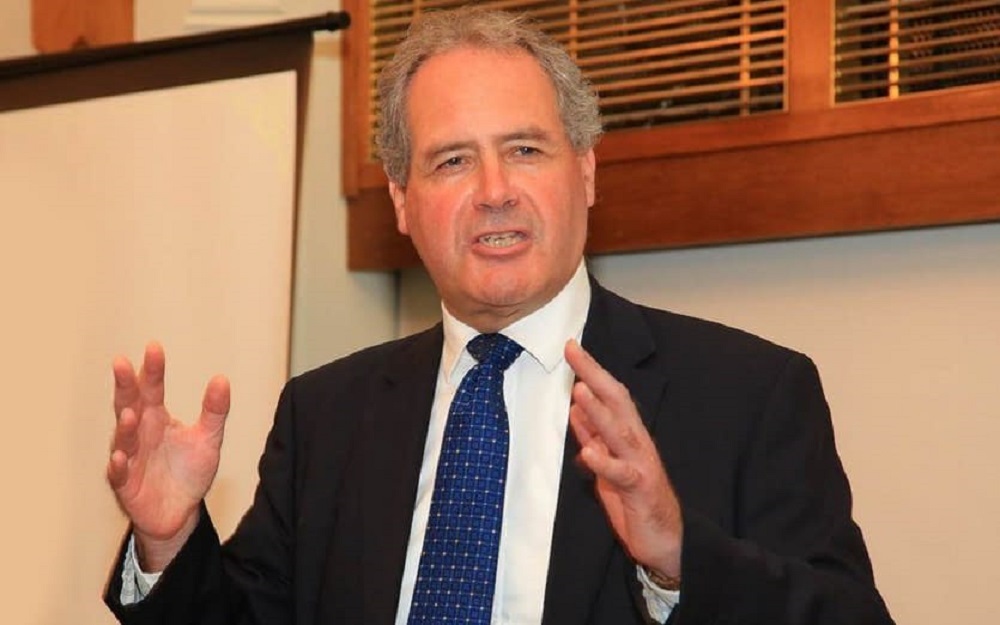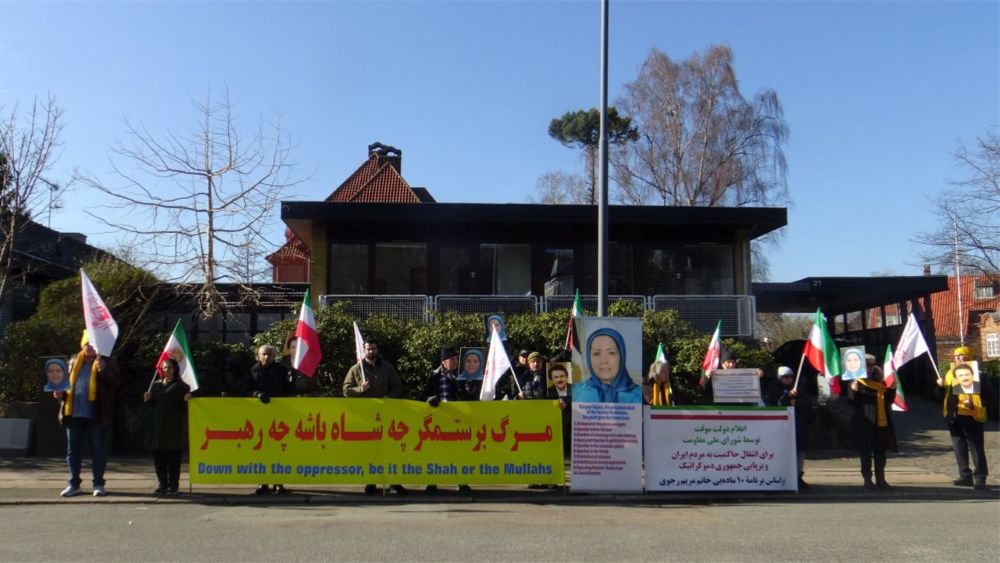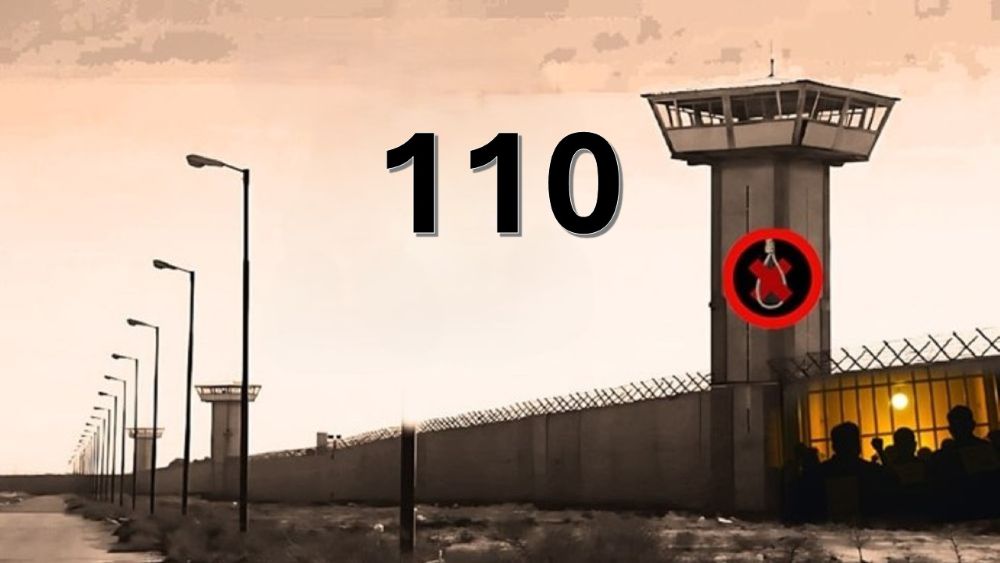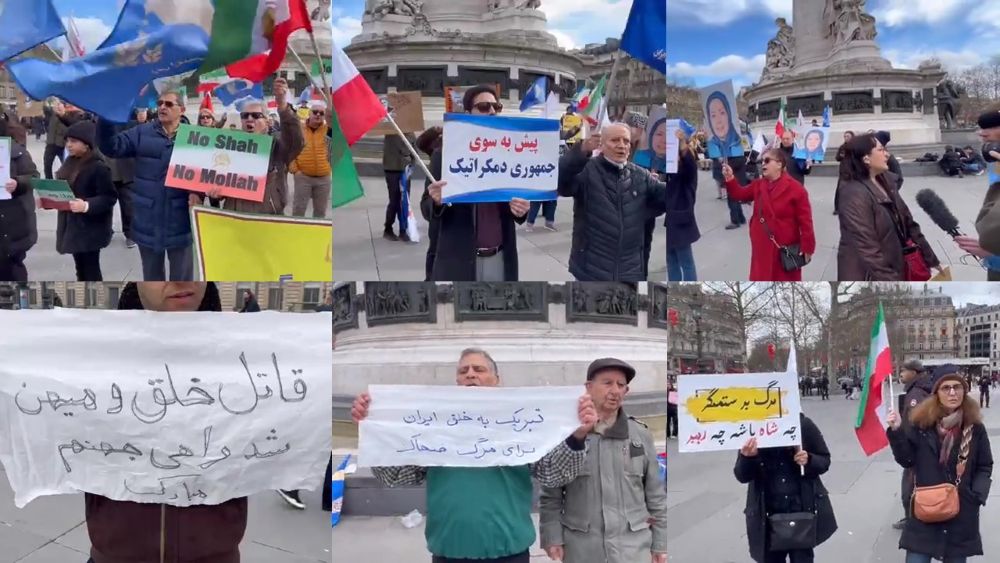
During a parliamentary meeting on November 28, Member of Parliament Bob Blackman, who serves in the United Kingdom’s House of Commons and holds the position of Executive Secretary of the 1922 Committee, expressed apprehension regarding Tehran’s involvement in supporting terrorism. He stressed the imperative for the UK to take resolute actions in response.
Mr. Blackman advocated for designating the IRGC as a terrorist organization and proposed measures such as the closure of the Iranian embassy, withdrawal of diplomats, and the imposition of robust sanctions. Emphasizing the threat posed by the Iranian regime’s acts of terrorism, he referenced the attempted bombing of an NCRI gathering in Paris in 2018. Mr. Blackman urged the UK to take a leading role in severing diplomatic ties with the theocratic regime in Iran, endorsing the democratic alternative put forth by the NCRI and its President-elect, Mrs. Maryam Rajavi.
The full text of MP Bob Blackman’s speech follows:
Bob Blackman: UK Must Lead the International Community In Cutting All Diplomatic Ties with Iran’s Regime
However, I do think there’s some important issues that have been raised by colleagues, which I think we need to bring together slightly, particularly, as you said, on our briefing paper and the recommendations that have been made in terms of policy recommendations.
The reality is that, as several speakers have mentioned, the attack by the terrorists with Hamas on Israel did not happen by Hamas putting this together themselves. They were given express permission, if not being ordered, by the regime in Iran to carry out the attack without question. Up until 7 October, there had actually been effectively a ceasefire between Hamas and the state of Israel, and that was being broken by Islamic Jihad and other terrorist organizations with rockets going from Gaza into Israel.
Basically, Hamas had not joined in those attacks until there was a meeting between the IRGC and the regime in Tehran with the Hamas leadership on 3 October. This was the decision-making that implemented that attack on Israeli civilians, and we do know that that was specifically because, as has been said quite rightly by our former ambassador, the position was that Saudi Arabia was on the point of agreeing with the state of Israel on an accord.
Those Abrahamic accords are making potential peace across the Middle East more and more realizable. But with the attack on Israel, and then the obvious reaction from the other side, that meant that Saudi Arabia no longer considered signing that accord.
So that has put back the cause of peace in the Middle East, I think, for many, many years. I also think that in terms of our report here, is not just proscribing the IRGC in its entirety, although I completely support that, what we have to do. We have to carry out the other recommendations that are contained in the document, namely closing the Iranian embassy here, withdrawing our diplomats from Iran, and imposing the strongest sanctions we possibly can against the IRGC and the Iranian leadership.
Because what we want to do is make sure that the ordinary Iranian people do not suffer the consequences of what has happened because of the Iranian regime. That means that at the moment our foreign secretary and others in the government say, well, we’ve sanctioned a large number of individuals from Iran. That is not sufficient to do what we need to do.
And the difference between, I think, the position of the IRGC and the position of Hamas is, first and foremost, very simple. Hamas basically is just a terrorist organization. They run, at the moment, Gaza, and they’re in control of Gaza, whereas the IRGC is an arm of the state. And therefore, by taking action against the IRGC, we would be taking action against the state. And of course, our friends in America have prescribed the IRGC, and therefore, we are seeming to be the outlier here, as opposed to wanting to take prompt action ourselves.
So we must call that out for what it is. And I am seriously, personally, seriously worried that I raised this in the House of Commons yesterday when we had an urgent question about the position in Gaza. Namely, that the release of the refugees, slowly, it’s happening, is to be welcomed. But what Hamas is doing is slowly letting hostages go, in return for the return of Palestinian prisoners.
When those Palestinian prisoners are being greeted back in the West Bank, it is Hamas that is getting the credit for getting those hostages released. So far from what we might like to see happen, which is the Palestinian Authority taking over control of Gaza, what is more likely to happen is that Hamas increase its popularity in the West Bank. And therefore, the risk is that Hamas getting control of the entirety of the Palestinian Authority. And therefore, it is immediately hostile to the State of Israel. And actually, we don’t actually resolve the problems of peace in the Middle East.
Now, we’ve got to remember that the regime in Tehran doesn’t limit itself to the Middle East, is targeting Europe in the form of state terrorism. We’ve heard about the dreadful attack on a parliamentary colleague in relation to what has happened there. But they haven’t, there’s not, they’ve been doing this for years. And anyone who’s a critic or an opponent is at risk, whichever European capital or city you’re in. They use hostage-taking diplomacy to cover the terrorism that they inflict on the people of Europe and on Iran.
Now, personally, I’ve seen this myself, because I was one of the plaintiffs against the Iranian diplomat Assadi, which went to the Belgian court. He was sentenced to 12, sorry, 20 years in prison for planning and trying to carry out a bombing of the NCRI gathering in Paris in June 2018. Many of my colleagues from the House of Commons and the House of Lords, as well as parliamentary colleagues from across the world, were present for that particular event. We were there to listen to Maryam Rajavi and endorse her 10-point plan and the democratic platform for a free Iran.
Now, had those terrorists succeeded, I think there would have been a major military conflict between the West and Iran. I think it’s not too fine a point to put on it that a world war could have erupted as a result.
I’m sure that our American colleagues would not have stood idly by, having seen so many potentially of their leading figures from the Senate and Congress having been murdered by a terrorist action.
But very sadly, despite the fact that Assadi was sentenced on charges of terrorism, he was released and allowed to return back to Iran by the Belgian government, who I condemn for allowing that exchange to take place, for a citizen of Belgium who was unjustly imprisoned on trumped-up espionage charges in Iran.
That shows that this regime would stop at nothing. They will immediately take a view of a hostage and they will use them to ransom them for their terrorists, terrorists who’ve been actually tried in court and found guilty of terrorism. And of course, the report suggests that the Belgian government went to great lengths to secure Assad’s release, even ignoring the court rulings that asked the government to inform the victims before going through with any prisoner exchange, so that we would have a chance to challenge this legally.
And no surprise, no great surprise, Assadi was then given a hero’s welcome in Tehran, greeted as a hero by both the Iranian foreign minister and the regime’s president, Raisi. Now we know that Assadi was not a real diplomat. He was the point of Iran’s intelligence ministry’s operation in Europe but was given diplomatic cover. So here we have an individual involved in promoting terrorism, greeted as a hero on his return to Tehran.
Now we know that the regime has tried to eliminate Madam Rajavi and her international Iranian supporters in Paris, but instead of paying the price, except for terrorism, the head of its operation now lives in freedom in Iran, possibly planning more terrorist attacks in mainland Europe against the Iranian resistance movement and those of us that support a very firm policy on Iran.
Now, as Ambassador Bloomfield explained, the regime has acted through a network of experts, researchers and advisors, often of Iranian origins, who advised various branches of the US and EU governments to unduly influence their policy on Iran. The main argument here is that the regime tried to sell for its influence network, but there’s no alternative. So the West must reach an understanding with the regime through dialogue.
Now, now that we’ve left the EU, we can guard ourselves against these deceptive influences and lies, and set our own policies to lead the world to adopt a policy on Iran. Hence we’ve got our recommendations on our briefing documents. Now, just some weeks ago, the former Vice President of the European Parliament had a strong support of the Iranian people. And the Iranian resistance movement, the NCRI, was the victim of a terrorist assassination attempt outside his home in Madrid. Our thoughts and prayers are with him and his family.
Now, the investigation is still ongoing. Three suspects have been arrested. And Dr. Vidal-Quadras has said to Spanish media and police that he suspects the Iranian regime was behind the terrorist assassination attempt against him because only Tehran sees him as an enemy.
The fact is, the Iranian regime put Dr. Vidal-Quadras on its sanction and terrorist, effectively designating him as a state enemy months before the assassination. Myself and many of my colleagues in this parliament and others who advocate for a firm principled policy against the regime, and a proscription, the IRGC, are also on that list. That is a chilling concern to everyone and our families.
Now, in this regard, I applaud the government for taking some measures to bring accountability to the center of our Iran policy now. As the Minister for the Middle East wrote to me in reply to my letter, it is clear what needs to happen. The UK must move ahead and prescribe the IRGC to deny the resources and funds it needs to export terrorism and to sustain and intensify the domestic repression. Such a decision will also make it a clear criminal offense to support and work with the IRGC in the UK, which is long overdue. And we have many agents of the IRGC operating in the UK.
Also, I agree with Madam Radjavi and urge the government to work with allies and partners to place the clerical review under Chapter 7 of the UN Charter as a threat to world peace and security.
The international community must accept and acknowledge this truth, so they can focus on supporting the solution, which the only solution here is the democratic alternative as presented by the NCRI and Mariam Radjavi.
It then follows that the UK should lead the international community in cutting all diplomatic ties with the Iranian regime, and close the embassy until such time as the regime ends its terrorism, warmongering, and hostage-taking diplomacy.
At this point, in my opinion, diplomacy with Tehran is more harmful than beneficial, because it hands the regime a political recognition that it neither should have nor deserves. Contrary to the lies and deception spread by the regime’s influence network, an Iranian solution and viable democratic alternative to the regime’s warmongering does exist.
It is the organized resistance of movement with its resistance units across Iran, presented by the NCRI and Madam Rajavi. And we salute those brave individuals who demonstrate literally every day against the regime.
The sooner the UK recognizes and endorses this Iranian popular alternative, the more effective will be our policy responses to counter the regime’s warmongering and terrorism. The Iranian people and the UK have a common enemy, which is the regime in Iran, only by cooperating with people and their true representatives, namely the NCRI and Madam Rajavi, we can defeat the brutal and criminal regime in Tehran.
So, ladies and gentlemen, we will continue to operate, and we’ll continue to support the position in relation to the briefing paper. I’m sure we’d all endorse, and I think every speaker has endorsed, the policy recommendations that we have had. And I’m not sure if we’ve got any other further colleagues that have not yet spoken.
I’ll take your advice. Yeah, good.



